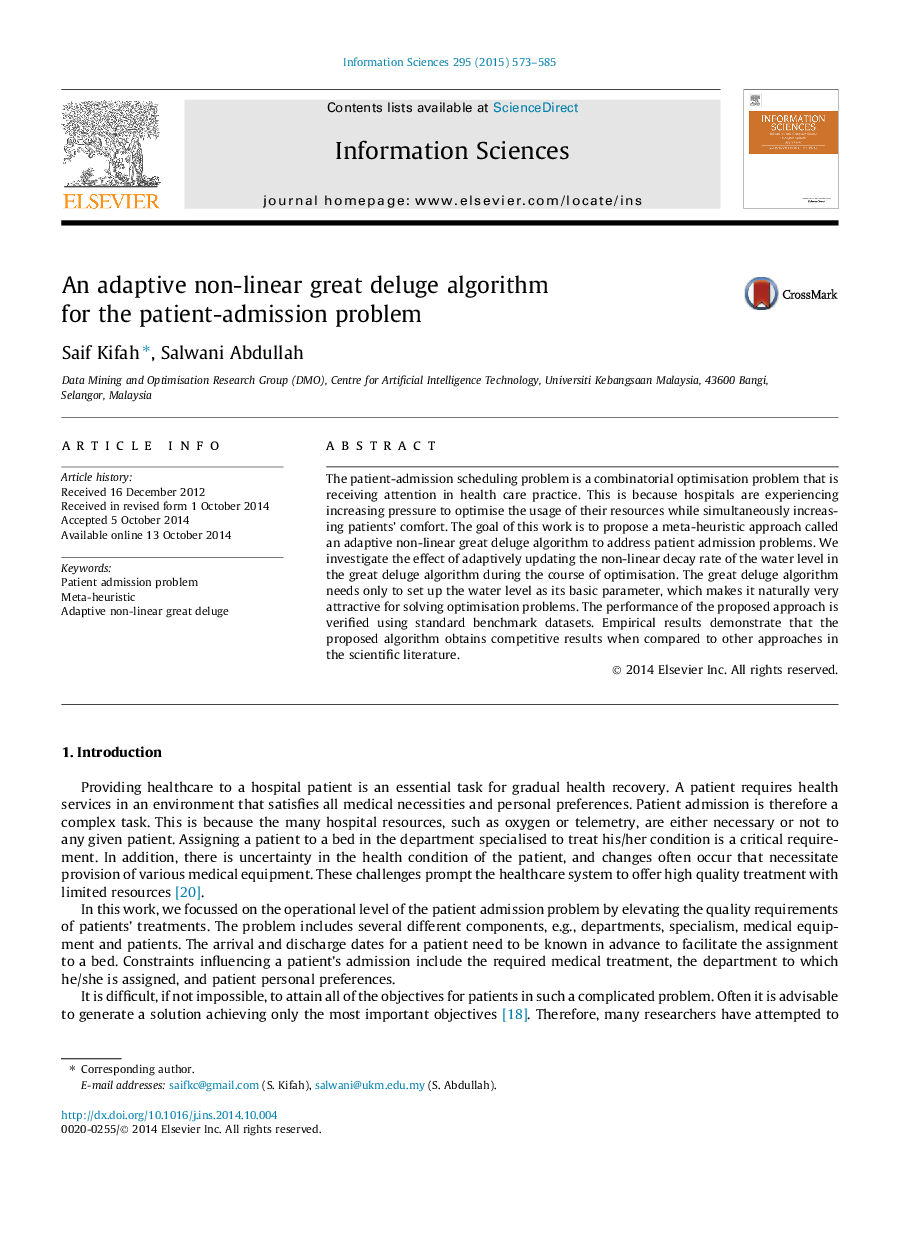| Article ID | Journal | Published Year | Pages | File Type |
|---|---|---|---|---|
| 392189 | Information Sciences | 2015 | 13 Pages |
•Adaptive non-linear great deluge algorithm is employed to tackle the patient admission problems.•Adaptive non-linear decay rate yields better performance than a linear decay rate great deluge.•The proposed approach is competitive and works well across all patient admission instances.
The patient-admission scheduling problem is a combinatorial optimisation problem that is receiving attention in health care practice. This is because hospitals are experiencing increasing pressure to optimise the usage of their resources while simultaneously increasing patients’ comfort. The goal of this work is to propose a meta-heuristic approach called an adaptive non-linear great deluge algorithm to address patient admission problems. We investigate the effect of adaptively updating the non-linear decay rate of the water level in the great deluge algorithm during the course of optimisation. The great deluge algorithm needs only to set up the water level as its basic parameter, which makes it naturally very attractive for solving optimisation problems. The performance of the proposed approach is verified using standard benchmark datasets. Empirical results demonstrate that the proposed algorithm obtains competitive results when compared to other approaches in the scientific literature.
